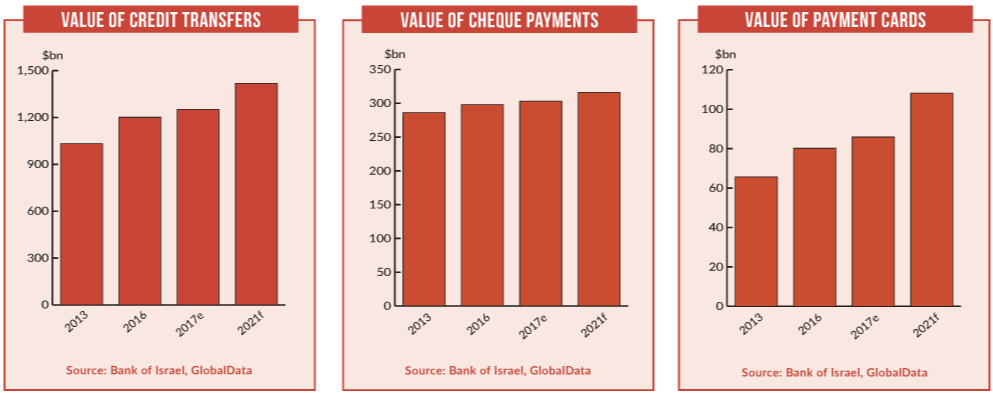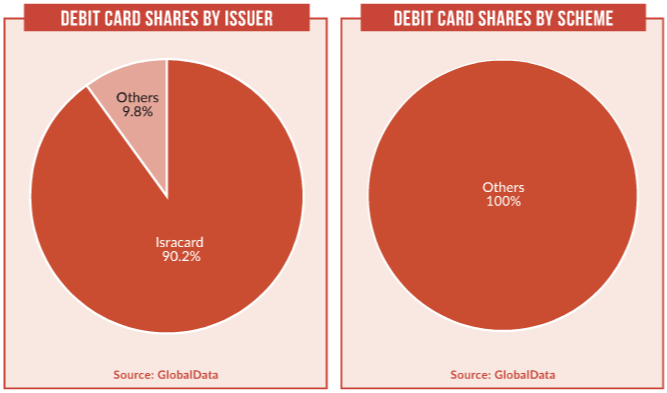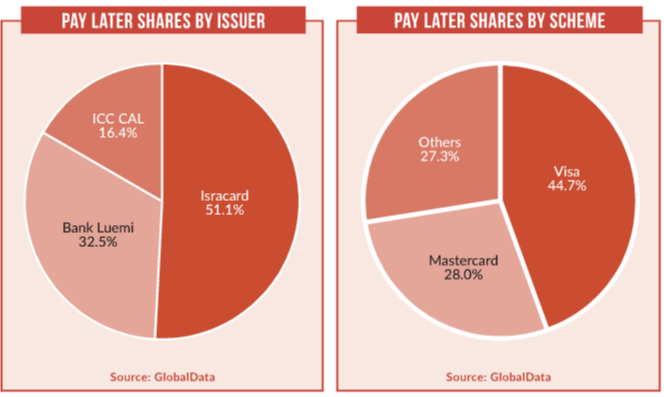Israel is one of the most developed payment card markets in the Middle East and Africa. Israelis are prolific users of payment cards, with frequency of card use for payments standing at 148 in 2017, the highest rate in the region.
The country’s payment card market is unique in that it was developed as a deferred payment market, unlike debit and credit card markets elsewhere in the world.
Charge cards accounted for 86.3% of total payment card transaction value in 2017, and have been the main driver behind the payment card market’s growth. However, the government has launched various initiatives to promote the adoption of debit and credit cards in the country.
The introduction of a cap on cash transactions and a reduction in interchange fees are some of the key regulatory measures the central Bank of Israel has undertaken to drive electronic payments. Robust growth in e-commerce, the adoption of EMV technology and the emergence of digital-only banks are other important trends.
Debit cards
Debit cards accounted for a minimal share of 8% of the overall payment card market by transaction value in 2017. Traditionally, debit cards are not very popular in Israel due to bank charges associated with these cards, limited merchant acceptance, and the strong consumer preference for charge cards.
The government has taken several steps to promote debit card adoption and use, such as making it mandatory to issue debit cards free of charge or at reduced cost, reductions to interchange fees, and enabling consumers to open bank accounts without visiting branches.

Charge cards preferred
Charge cards remain the preferred type of payment card in Israel, accounting for 86.3% of overall payment card transaction value in 2017.
In Israel, most pay-later cards are offered in the form of charge cards, which are linked directly to the customer’s bank account, with the full outstanding amount charged to the cardholder’s bank account on the due date.
Revolving credit card facilities are also available, but these are generally offered only on request. The steady decline in interchange fees is also driving use of charge cards.
Cross border e-commerce
E-commerce registered significant growth from ILS15.5bn ($4.4bn) in 2013 to $7bn in 2017, at a CAGR of 12.0%. Israel’s e-commerce market is dominated by cross-border transactions, with over three-quarters of online shoppers making purchases on foreign sites such as Amazon and AliExpress.
The availability of exclusive cards for online shoppers, and the emergence of alternative payment methods such as PayPal and Masterpass are also supporting e-commerce growth.

Prepaid card issuers
In Israel, prepaid cards are mostly used as alternatives to cash, and are targeted mainly at unbanked or underbanked individuals. The prepaid card market registered robust growth in terms of both the number of cards in circulation and the total transaction value between 2013 and 2017.
The prepaid card transaction value rose from $0.3bn in 2013 to $0.7bn in 2017, at a CAGR of 19.5%. Prepaid cards in Israel are also distributed and marketed through thirdparty companies.
Imagen distributes Mastercard-branded payroll, travel and businesses prepaid cards issued by Bank of Jerusalem. Similarly, Expay distributes the Mastercard-branded EX-CRD prepaid card, which can be used for purchases online and at merchant stores, as well as for cash withdrawals at ATMs. The card is issued by TBI Credit.

EMV Standards
The government made it mandatory that new POS terminals installed by new or existing merchants should be EMVcompliant with effect from August 2017.
However, to provide sufficient implementation time for all stakeholders, the liability shift mechanism date was delayed from August 2017 to 1 January 2018.
In August 2017, Israel-based grocery chain Shufersal partnered with POS solutions provider Verifone to install EMV compliant POS terminals at its stores.







